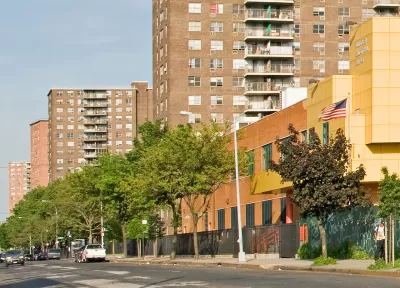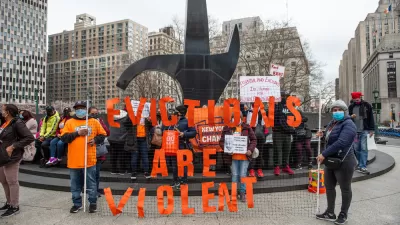The new "Affirmatively Furthering Fair Housing" rule may impose additional paperwork burdens on local government, but is unlikely to cause major policy changes.

There has been some controversy about the federal government's new “Affirmatively Furthering Fair Housing” (AFFH) rule. Supporters hope, and opponents fear, that the rule will integrate lily-white suburbs and eliminate exclusionary zoning. However, there is reason to believe that the rule's impacts will be fairly minor.
The Department of Housing and Urban Development (HUD) which enacted the rule, did so in order to implement sec. 808(d) of the Fair Housing Act, which requires federal agencies "to administer their programs...relating to housing and urban development...in a manner affirmatively to further" the policies of the Act—in other words, to affirmatively further fair housing.
In the past, HUD has sought to implement this statute by requiring grant recipients (such as local governments and public housing agencies) to draft an analysis of impediments (AI) to fair housing. An AI typically described impediments to racial integration, such as exclusionary zoning and racial disparities in mortgage lending. HUD decided that the AIs were not tremendously successful, because they did not contain enough data and were not adequately linked to other planning documents. (80 Fed. Reg. 42348).
The new rule requires grantees to create a new document called the "Assessment of Fair Housing" (AFH) every five years. The AFH will address a community’s barriers to integrated housing, such as "integration and segregation; racially or ethnically concentrated areas of poverty; disparities in access to opportunity, and disproportionate housing needs based on race, color [and other factors]" (80 Fed. Reg. 42355). The AFH will summarize any current litigation, analyze relevant data, and identify major factors limiting housing opportunity. The grant recipient must also set goals for overcoming the effects of these factors. To receive funding from HUD, a grantee must certify that it will affirmatively further fair housing, which means that it must promise to take meaningful actions to further these goals. (80 Fed. Reg. 42316). In other words, the grant recipient has to create paperwork stating: "This is why our city/county/area is more segregated than we would like, and this is what we would like to do about it."
According to HUD, the new rule will impose increased costs of data collection and paperwork upon municipalities, because municipalities must solicit more community participation than under the prior rule. HUD also suggests that the municipalities that have already been taking their AI obligations seriously "may experience a net decrease in administrative burden as a result of the revised process" (80 Fed. Reg. 42349).
The rule does not require any specific policies; instead, it just requires municipalities to describe the status quo, promise to adopt some sort of policy related to fair housing, and to justify those policies to HUD. Thus, it seems to me unlikely (though not impossible) that HUD will actually force significant changes in municipal policy.
In theory, HUD could keep saying no to a municipal AFH until the city or county adopts far-reaching policy changes, or could deny funding on the ground that the city has violated the promises in its AFH. But I doubt that this will occur, for two reasons. First, if HUD has not been using the AI process to remake cities and suburbs, I question whether it will have the willpower to use its new and improved procedural tools much more aggressively. Second, if HUD went to the edges of its authority, it would be risking fights in the courts and fights with Congress.

Trump Administration Could Effectively End Housing Voucher Program
Federal officials are eyeing major cuts to the Section 8 program that helps millions of low-income households pay rent.

Planetizen Federal Action Tracker
A weekly monitor of how Trump’s orders and actions are impacting planners and planning in America.

Ken Jennings Launches Transit Web Series
The Jeopardy champ wants you to ride public transit.

California Invests Additional $5M in Electric School Buses
The state wants to electrify all of its school bus fleets by 2035.

Austin Launches $2M Homelessness Prevention Fund
A new grant program from the city’s Homeless Strategy Office will fund rental assistance and supportive services.

Alabama School Forestry Initiative Brings Trees to Schoolyards
Trees can improve physical and mental health for students and commnity members.
Urban Design for Planners 1: Software Tools
This six-course series explores essential urban design concepts using open source software and equips planners with the tools they need to participate fully in the urban design process.
Planning for Universal Design
Learn the tools for implementing Universal Design in planning regulations.
Ada County Highway District
Clanton & Associates, Inc.
Jessamine County Fiscal Court
Institute for Housing and Urban Development Studies (IHS)
City of Grandview
Harvard GSD Executive Education
Toledo-Lucas County Plan Commissions
Salt Lake City
NYU Wagner Graduate School of Public Service






























